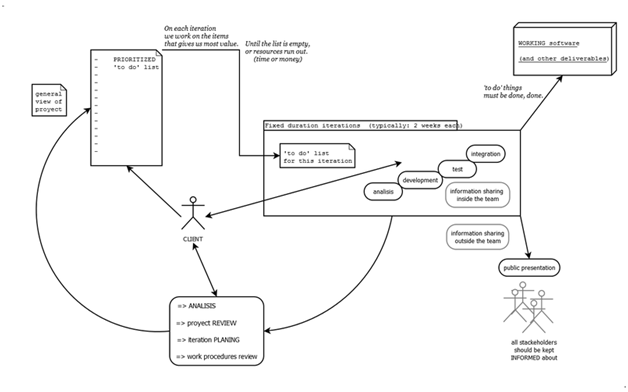The Agile software development manifesto was devised in Utah in 2001. It is hard to think of a more disruptive (in a good way) change to working practices over the intervening 17 years. From start-ups to major players like Google and Amazon, in the private sector, almost everyone is using Agile.
Agile works because it encourages everyone to contribute. By giving skilled people the opportunity, innovation happens. By contrast with its predecessor, waterfall development, better-quality software can be delivered which has a realistic chance of meeting the needs of the end-users.
What’s Different About the Public Sector?
One can see that Agile is eminently suitable for a start-up or a small company where job roles are flexible. Indeed, with an intake of graduates already schooled in Agile methods, it would be difficult to implement anything else.
For a mature software development company there would be challenges implementing Agile, but the management would be well aware of the need to evolve. How else would they be still in business?
The public sector, however, has many different challenges. Governance, controls and, particularly, approvals processes are very different. Software for government departments has to be highly specified. Documents must be approved before development begins. It is easy to see why projects like Universal Credit struggled to deliver what the public needed.
Moving Forwards
The government is becoming aware of the issue. The Institute for Government identifies some suggestions: https://www.instituteforgovernment.org.uk/news/in-the-press/how-public-sector-can-become-truly-agile
Training and Pilot
For public sector teams looking to implement Agile on a project, training is vital. Initially a workshop and training for managers will be necessary to understand and promote Agile working – also a short course for team members, who will need to adapt and learn to think Agile. Critically, a Scrum Master will need to run the project and will need very focussed training, such as Scrum Master Training Dublin from https://www.althris.com/courses/scrum-master/.
Management will need to identify a pilot project and build a cross-functional team. They should monitor the project closely, using Agile reporting, to support the team members and learn from their experiences.
The private sector has had 17 years to understand Agile. The practices and training have evolved to a highly professional level. The public sector is being asked to deliver more systems for less investment. Now is the time for them to embrace Agile.


